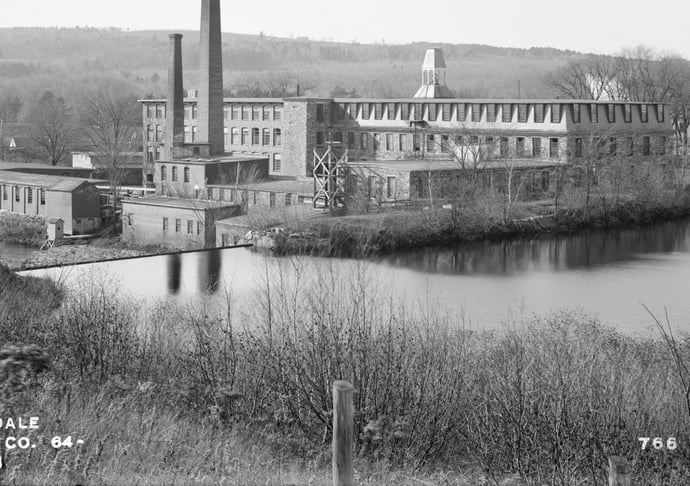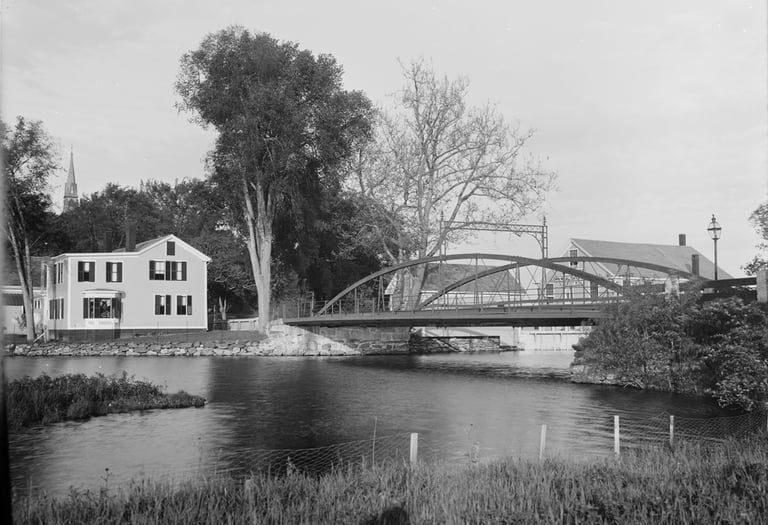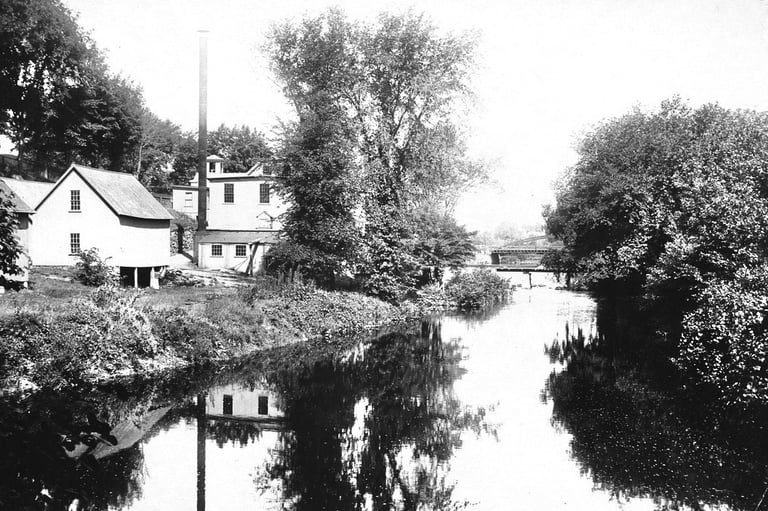1800's Industry




Cowee Grist Mill 1898
West Boylston Manufacturing Company of Thread and Wire 1898
In the early 1800s a great change began to take place with the development of industry in town. Because of the water power available from three rivers: the Nashua, the Stillwater and the Quinapoxet, it was only natural that industry would develop in this period of history when water power was utilized so widely. Thank to Samual Slater, spinning machines run by water power were replacing home industries of hand spinning and weaving.
Some of the industry that existed in West Boylston included: Warfield's Cotton Mill, L. M. Harris Cotton Mill in the Harrisville section of town, Holbrook Cotton Mill, Cowee's Grist Mill, West Boylston Manufacturing Company of Thread & Wire, Howe Morton and Lovell boot manufacturing company, the Brigham Basket Company, and Warner's Saw Mill. The Clarendon Cotton Mill was where Erastus Bigelow learned about looms and invented the technique to improve carpet manufacturing.
As the century went on, the banks of the rivers in the lower common and in Oakdale would be lined with factories and housing for the workers. The town's population doubled between 1810 and 1849, largely due to the arrival of immigrants of Irish and French-Canadian descent, seeking work. Many of the mills offered tenement housing for the workers near the mills. The center of town moved from the upper common, where the Meetinghouse stood, to the lower common nearer the mills.
The town's industry was thriving, but in 1893, unbeknownst to residents, life was about to change. That was the year the General Court of Massachusetts passed an act to investigate possible ways to procure an additional water supply for the citizens of Boston and its suburbs. In 1894, the report indicated that West Boylston had an assessed property value of $951,000. The State Board of Health proposed taking 60% of that. In 1895, with little concern for the affect of the massive changes to the townspeople that would take place, the State approved the building of the reservoir. The town inhabitants prepared to deal with the losses it was about to endure.
Holbrook Mills (Frank H Rice Mill) on the Nashua River


West Boylston Historical Society
PO Box 201
65 West Boylston St.
West Boylston, MA 01583
